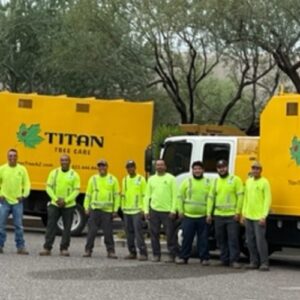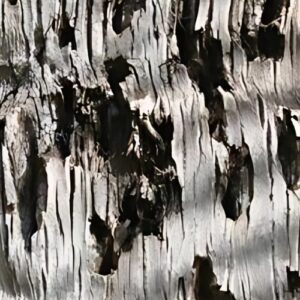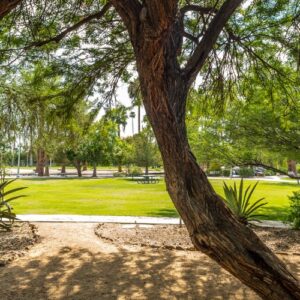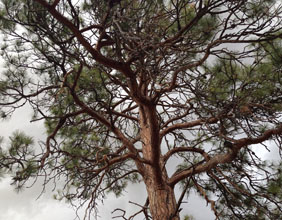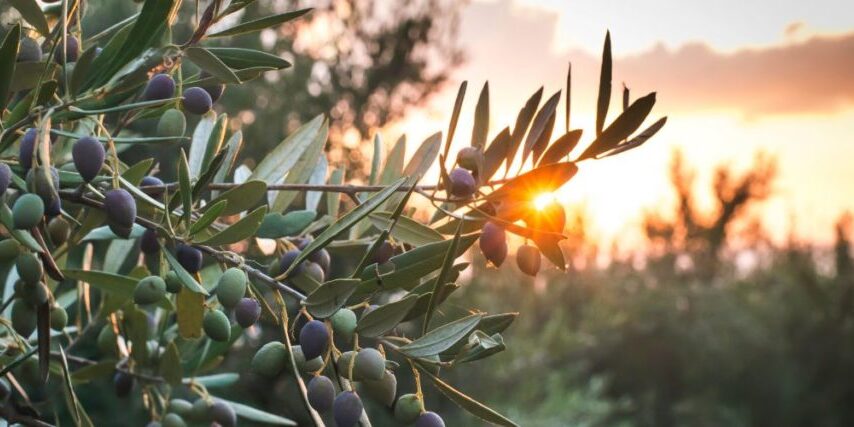
Titan Tree Care is now offering Plant Health Care (PHC) services. Plant health care is a way to help your plant and trees, especially those that are not native to our area, to better withstand the growing conditions found in the Phoenix area.
While this doesn’t mean that you can successfully grow a plant or tree that only survives in a northern climate, it does mean that you can help some non-native trees, such as olive, mastic, elm, and pastiche trees, thrive in our desert environment.
Keep reading to learn how you can help your plants and trees survive drought conditions, hot summers, pest issues, and more.
Native vs. Non-Native Plants and Trees
We encourage the planting of native plants and trees, which are plants and trees that you would naturally find in our Phoenix deserts, whenever possible.
Anthem communities, especially, have limited the number of non-native plants, shrubs, and trees that are allowed.
However, there are some florae that can survive in our area if they receive additional assistance. Plants that may normally struggle due to high temperatures and low rainfall can improve their health significantly with some professionally applied fertilizers, root drenches, and soil injections.
When treated throughout the year, groundcover plants, shrubs, and trees that usually “don’t want to be here” will do much better than those that are not treated.

How Plant Health Care Treatments Benefit Trees and Plants
Very few plants and trees from other areas of the country or world can survive Phoenix’s hot summers, strong storms during monsoons, and extreme periods of drought.
Many popular trees and plants come from Asia, South America, or Mediterranean countries, where the temperature can be almost as hot, but the climate tends to have more moisture due to more consistent rainfall.
The red push pistache tree, for example, is native to China but has become a popular ornamental tree in the Southwest. In order to thrive, however, it will need some assistance from treatments such as fertilizers, soil conditioners, soil moisturizers, root stimulants, humic acid, and more.
Fertilizer
Phoenix-area soils tend to lack important nutrients that non-native plants and trees need to survive, such as nitrogen, phosphorus, and iron.
Tree and shrub fertilization in the form of a liquid nutrient solution, when properly applied by a professional, can help your plants to grow stronger branches, greener foliage (nitrogen-deficient leaves are often yellow), and a more stress-tolerant plant overall.
Titan Tree Care offers a fertilizer with slow-release nitrogen that can improve the health and growth of non-native trees, shrubs, and ornamentals. It is also formulated with phosphorus, potassium, and several micronutrients, ensuring your plants are receiving the extra boost they may need to survive in our desert soil.
Humic Acid
Humic acid also works as a sort of fertilizer, using the components of organic matter to add nutrients to the soil. Humic acids exist naturally as the organic matter breaks down, so we are replicating what happens in nature by adding it to your soil.
Humic acid has many benefits, including improving the overall plant health and allowing your plants and trees to fight off any pests or diseases. It also can stimulate root growth, increase the amount of nutrients roots are able to absorb, and can help our desert soil hold onto more water.
Organic Root Stimulant
If you’ve read our blog post about mycorrhizae, you know that it is a type of fungus that attaches to plant and tree roots and helps those roots more easily absorb water.
A root stimulant is very similar. It can help with the development of roots and can help those roots gather water and more easily absorb water from root hairs. During our dry season, getting more moisture to plants and trees is a necessity!
Similar to other plant health care products we’ve mentioned, root stimulants can also increase the stress tolerance and nutrient uptake of the plants or trees being treated. During colder weather, root stimulants can also minimize frost damage – important for trees or plants that can’t handle any cold weather!
Root Zone Moisture Manager
Titan Tree Care offers a product called Hydretain, which is known to manage soil moisture. This means that non-native shrubs, trees, and even lawns can survive with less watering. It pulls moisture vapor from the soil and converts that vapor into water droplets that are then absorbed by the roots.
We apply the moisture manager by “watering it in” to allow it to reach the root zone. Once there, it attaches to the root hairs and begins to convert water vapor.
Soil Conditioner
Titan Tree Care uses a molasses-based soil conditioner to improve soil microbial activity. Similar to fertilizer, it provides a food source for soil microbes, which improves soil quality. The micro and macronutrients that are in the soil conditioner also improve tree and plant health.
Our native Phoenix soils have low organic matter content, generally, so a soil conditioner can add the needed nutrients and make them immediately available as a source of energy for your plants and trees.
Grub Control
Agave snout weevils can overtake agave plants, and palo verde trees can suffer from palo verde root borers. Both of these pests can be treated while they are still grubs by mixing in grub control.

Recommended Schedule of Treatments
While each of the treatments mentioned above is available individually, we have crafted an annual treatment schedule that reflects our area’s seasonal changes and the treatments needed by non-native plants and trees in each of those seasons.
Trees and plants need different things in different seasons. In early summer, before monsoons arrive, moisture is needed, while in early spring, nutrients are needed to help plants and trees grow. In the fall, non-native trees prepare for dormancy.
Below is our recommended schedule of liquid treatments, using root drench and soil injection techniques, for groundcovers, shrubs, and trees in the Phoenix area.
Spring (January through March) – Fertilizer, humic acid, and an organic root stimulant
Early Summer (May through June) – Hydration application of a root zone moisture manager, humic acid, and heavy water application.
Fall (September through November) – Pre-dormancy application of a soil moisturizer, humic acid, and an organic root stimulant.
Grub Control – Supplement with grub control when needed.
Do Native Plants, and Trees Benefit from Plant Health Care?
Yes, our native plants and trees can also benefit from these treatments. While native flora is more likely to survive our extreme temperatures and lack of rainfall, they can still suffer from a lack of nutrients in the soil, inconsistent watering, heat stress, drought stress, pest infestations, tree and plant diseases, and more.
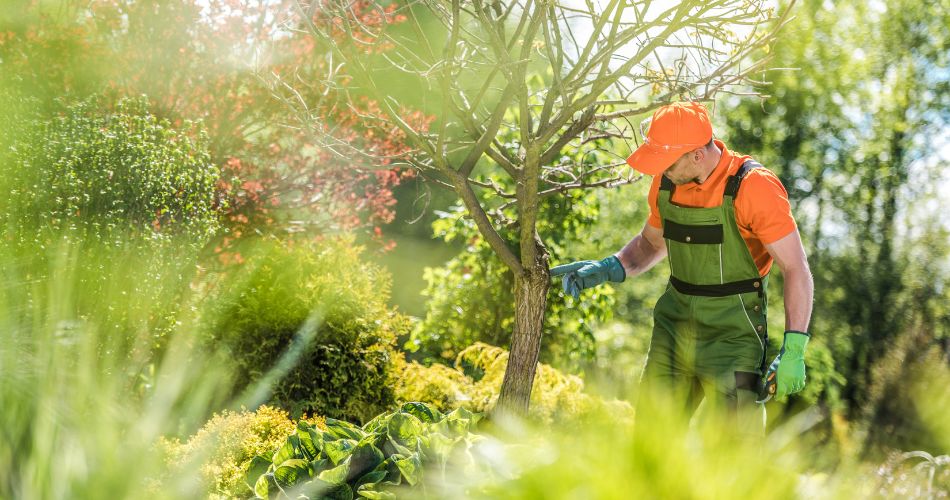
Contact Titan Tree Care to Schedule Your Plant Health Care Treatments
Call or contact Titan Tree Care for more information, a property assessment, or to book your plant health care treatments.
You can also learn more about our fertilization services and insect and disease treatments on our website.
More Articles Like This

Titan Tree Care is a full-service tree care company located in Anthem, AZ and serving all of North Phoenix. We offer a wide range of services to meet your tree care needs, including tree and palm trimming, tree pruning, tree removal, stump grinding, and more. We also offer insect or disease treatments and fertilization services. We are dedicated to providing high-quality, safe, and effective tree care services to our customers and work hard to ensure that your trees are healthy and look their best.





